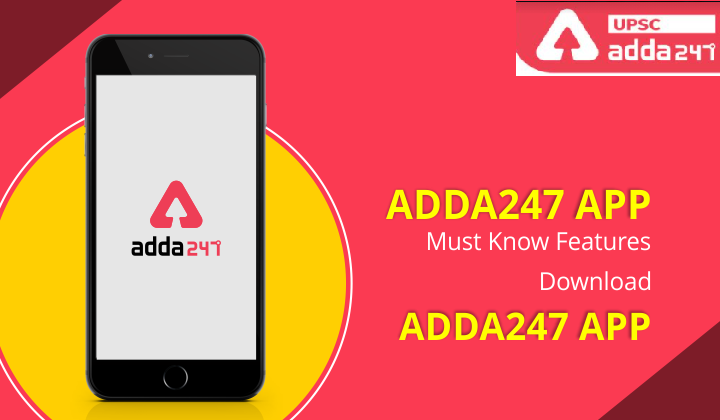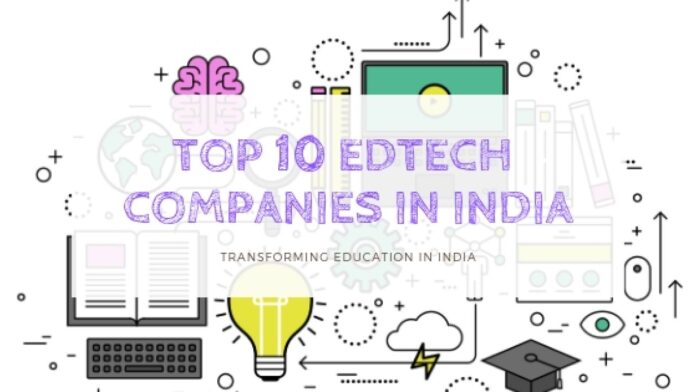India experiences slanted understudy to-instructor proportion that continues to rise; it compromises the learning experience for understudies in schools. To counter this skewness, innovation-driven learning apps use gaming components, such as point-scoring, interaction with others, personalization, and information-driven insights to improve the learning system for understudies and hone their rudiments in different subjects. These edtech companies in India are known for their provisions that empower understudies to perform better in study halls.
Table of Contents
List of Top Edtech Companies in India
Read below
BYJU’S – Edtech Apps in India
BYJU’S Classes offer a learning app that coaches cutthroat placement tests like IIT-JEE, CAT, UPSC, GMAT, GRE, Engineering, and Medical, and grades sixth to twelfth. BYJU offers online and tablet classes with multi-test and task arrangements, individual criticism, and top-to-the-bottom investigation. After using the BYJU’S app, 93% of guardians announced a checked improvement in their kid’s exhibition in grades, according to the organization. BYJU has 15 million enrolled clients, with 900,000 taking yearly paid memberships and an 85% recharging rate. The normal app commitment rate, as detailed by the organization, is 53 minutes of the day.

BYJU’S is an edtech startup in Bangalore and was established by Byju Raveendran in 2011. Its present complete value is $5.4 billion. BYJU’S won many honors like the CRISIL Emerging India Award and the Deloitte Technology Fast 50 Award. It is accessible on Android and iOS stages.
Unacademy
Dispatched as a YouTube direct by Hemaash Singh in 2010, Unacademy is currently a popular name in the training innovation section of India. Unacademy is one of the most well-known e-learning new businesses in India. Unacademy has the objective of providing free training. What’s more, It has wandered into various fields like banking, CA, CAPF, UPSC, CLAT, CAT, JEE, pre-clinical, and then some. The video instructional exercises are accessible in different dialects, and understudies can follow mentors to get courses straightforwardly from them. Unacademy’s business model is principally founded in addition to the Subscription highlight presented on its foundation.
Unacademy is an edtech organization in Bangalore that fills in as an online learning commercial center for courses. It was established by Heemash Singh, Sachin Gupta, and Gaurav Munjal. The YouTube channel was shifted to an online learning stage in 2015. You can, in any case, find numerous recordings on Unacademy’s YouTube Channel.
Toppr
Toppr – Education innovation Startups in India
Toppr is an online test planning stage for K-12 understudies. Toppr centers around school educational plan prospectus and selection tests like JEE, UPSC, NEET, SAT, and so forth. It offers organized courses supplemented by interactive video addresses, practice question sets, question clearing by experts, and all-India test series. Toppr is based out of Mumbai and was established by Zishaan Hayath in 2013. The Toppr app includes objective-based learning, versatile inquiries’ training, execution reports, idea sheets, and earlier year question papers. Among all the Edtech companies in India, it likewise offers courses for clinical and engineering examinations, board examinations, and Olympiads.
Next Education
Next Education is a Hyderabad-based learning site established by Beas Dev Ralhan in 2007 and takes into account K-12 understudies through its innovation-based schooling arrangements. Next, Education has leading items like TeachNext, LearnNext, MathsLab, ScienceLab, and EnglishLab on its foundation. These items are utilized in more than 6,000 schools the nation over.
The review material and items are intended to cover the prospectus of CBSE, ICSE, and 23 state sheets in 8 significant Indian dialects. Other mechanical headways on the app include 2D and 3D illustrations, the interactive substance of international principles, voice-overs, intelligible sound, and an innovative course plan that is effectively available using an inbuilt IR remote. Next, Education’s innovation stage depends on Linux and open-source assets. The organization has invested over Rs: 400 crores and more than Rs. 30 crores on R&D alone.
Influence Edu
Influence Edu – Edtech Startups in India
Influence Edu got going as a school affirmations stage and became a full-stack commercial center within a year. Akshay Chaturvedi established influence Edu in 2018. The stage utilizes an AI apparatus to help understudies in their professions through mentorship items, start to finish school affirmation direction, projects to assist with becoming first-work prepared, and coordinated virtual warning for a considerable length of time streams.
NoPaperForms
NoPaperForms – Edtech Startup in India
NoPaperForms is a SAAS-based (programming as-a-administration) enlistment mechanization arrangement startup that intends to change the confirmation interaction in schooling institutions in India and abroad. The stage assists institutions with increasing their effort abilities, upgrade enrollment endeavors, extend client support offerings, and further develop an outcome. The whole cycle is 100% straightforward. NoPaperForms has banded together with more than 190 institutions and cases to have taken care of 350k+ questions. It has gotten more than 1.2 million applications and has developed by around 500% in a year’s an ideal opportunity to R. 100 crores. This valuation was accomplished after NoPaperForms raised its Series B funding in December 2018.
Quizizz
The best Edtech companies in India
Quizizz is an interactive teaching stage that permits its clients to direct understudy-paced developmental evaluations in an engaging way for understudies. The site can be worked on any program, PC, PC, tablet, and cell phone. The stage combines game-plan components and assists instructors with turning understudies’ schoolwork and tests into independent games. Then, at that point, there is the alternative of instant input. Instructors can utilize their own substance or look over a large number of teacher-made tests. Quizizz’s point is to persuade students and have an impact on their development. Quizizz has more than 10 million clients, and its answer is all around embraced in US-based schools.

Camp K12
Camp K12 gives school understudies business and app advancement projects during their excursions and end of the week. It centers around developing children into innovators. Anshul Baghi established CampK12 in 2010. The organization began as a coding boot camp for youngsters. Starting today, CampK12 has obliged 50,000+ understudies.
Coursera
Coursera is another training stage that offers an assortment of courses. The USP of Coursera is the accomplished expert it enlists. If you need to gain from exceptionally experienced individuals worldwide, then, at that point, Coursera is intended for you. Actually, like Unacademy, you can watch the recordings of certain courses free of charge; however, you should pay for the certifications and tasks.
Cuemath
Cuemath is a program that instructs math to kids. Cuemath has more than 3000 focuses in India, and every meeting in the middle has just six understudies all at once. The startup’s accentuation isn’t on Abacus or Vedic math; it centers around improving the numerical ideas of kids instead of only teaching them to ascertain quickly. Manan Khurma established Cuemath in 2013. The charges range from Rs. 2500-Rs. 3000 depending on where the branch is found.
Rationale Roots
Gunjan Agarwal established rationale Roots in 2011. Rationale Roots is a game producer that plans and creates tabletop games to assist kids with understanding the nuts and bolts of math. Its items are accessible on pretty much every web-based business stage—Amazon and Flipkart are a portion of those stores. Other than games, Logi Roots additionally gives worksheets to kids on its site.
IndigoLearn
IndigoLearn is a Hyderabad-based bookkeeping-centered edtech startup. The startup utilizes the most recent innovation and liveliness procedures to make finance and bookkeeping amusing to learn. IndigoLearn was established by Somayajula, Sathya Raghu Mokkapati, Suraj Lakhotia, and Sarat Udumari in 2017.
My Peegu
My Peegu gives instruments that help guardians and educators screen their children’s prosperity. A group of expert therapists gives treatment to children to mental turn of events. My Peegu’s administrations are accessible in 6 nations, including India.
Thinkerbell Labs
Sanskriti Dawle and Aman Srivastava established Thinkerbell Labs. Begun as an independent exploration project named “Undertaking Mudra,” Thinkerbell Labs is presently working on a self-learning braille gadget. The gadget is named Annie, and anybody can gain proficiency with the braille language with it.
captain
MyCaptain gives understudies an approach to encounter different fields of interest and tests them out. More often than not, kids pick their way according to the accepted practices or in the ravenousness of huge loads of cash. MyCaptain assists understudies with discovering their interests and indulge in a lifelong that suits them. Individuals can settle on informed choices when they know about the real factors related to different professional directions.
Adda247
Adda 247 is India’s leading instruction innovation organization that helps with government work readiness and gives articles, occupations alarms, tests, recordings, digital books, e-magazines, conversation discussions, etc. The Adda 247 app offers a smooth UI and intuitive work processes that are fueled by cutting-edge technologies. The organization has planned other apps like Bankersadda.com (to get ready for banking tests), SSCAdda.com (to get ready for different focal government tests), and TeachersAdda.co. to sack teaching occupations in government schools. The Adda 247 YouTube channel contains recordings on the current issues and upcoming government work openings.

Conclusion
Even though the Indian instruction framework is undergoing a seismic shift, Indians actually need to manage obsolete strategies for teaching and inefficient learning methods. The framework likewise encourages undesirable rivalry among understudies. Edtech companies in India are slowly changing all of this to improve things. What’s your interpretation of online learning stages? Are there other edtech adventures that ought to be highlighted in this post? We’d love to hear from you in the remarks.












